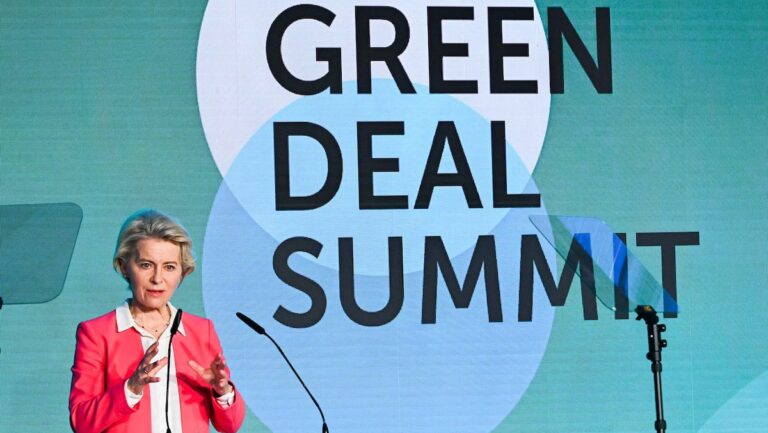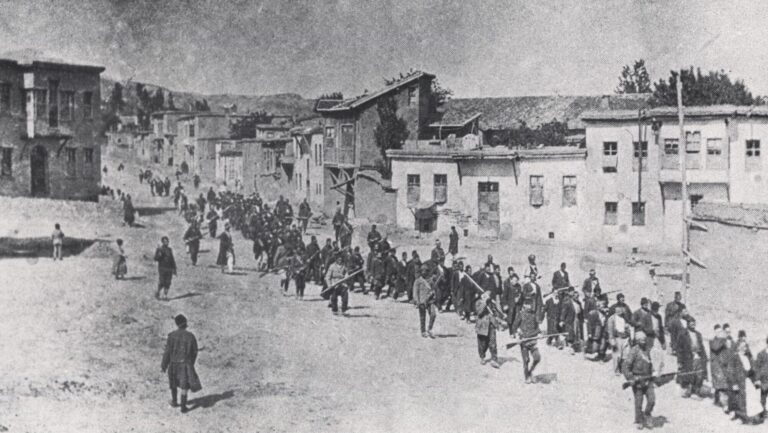The Georgian parliament has passed its hotly debated “foreign agents law,” eliciting a wave of U.S. and European condemnation that threatens to rupture Georgia’s growing ties with the West. But these reactions do not accurately portray the law or the ruling Georgian Dream party’s reasons for doggedly advancing it in the face of stiff domestic opposition. Indeed, the cure is turning out to be much worse than the disease: efforts to punish Georgia are misplaced from a policy standpoint of democracy promotion, and they risk precipitating, rather than deterring, the country’s drift toward Russia.
Georgia’s “Transparency of Foreign Influence” bill, the latest iteration of a law shelved last year in response to mass protests and Western pressure, regulates the activities of domestic non-governmental organizations (NGOs). There are thousands such organizations registered in Georgia, and as much as 90% of their funding reportedly comes from foreign sources. A large share of these groups rely on EU and U.S. entities for their revenue streams, fueling concerns that Georgian politics is being shaped by Western cash infusions funneled through local NGO conduits. The degree to which this is happening and the extent to which the transparency law evenhandedly addresses this perceived problem are serious questions that can and should be debated within Georgian civil society. However, there is little question that it is within the purview of democratically elected governments to regulate and impose restrictions on the activities of foreign-funded NGOs.
The bill requires NGOs that receive more than 20% of their funding from abroad to register as “organizations acting in the interest of a foreign power” and to submit to certain financial reporting requirements, or else face stiff fines. Critics have charged that these provisions place onerous restrictions on free expression. Indeed, Georgian civil society should carefully weigh the tradeoff between stemming foreign influence and curbing legitimate forms of political expression, but there is no indication that these provisions violate the Georgian constitution. Not even Salome Zourabichvili—Georgia’s president and the bill’s highest-profile Georgian critic—has made the case for this bill being illegal or outside the purview of Georgia’s democratically elected government. Equally wrongheaded are attempts to paint these transparency provisions as a “Russian law,” “Kremlin-inspired,” and, as Zourabichvili put it, “Russian in its essence.” Russia is one of dozens of countries, including India, France, and Australia, to place legal restrictions on foreign influence, but there is nothing intrinsically Russian about the Georgian law. Even as the EU threatens Georgian lawmakers with consequences over their bill, the European Commission is moving forward with its own “foreign agents” directive, reflecting a stark discrepancy between Western rhetoric and actions.
Though this law is neither incompatible with Georgian democracy nor recognizably Russian, Western leaders are moving to impose severe and wide-ranging punitive measures on Georgian Dream. U.S. Secretary of State Antony Blinken announced new restrictions against “individuals who are responsible for or complicit in undermining democracy in Georgia, as well as their family members,” adding that further sanctions are on the table as Georgia heads into its October parliamentary elections. A Senate bill introduced in late May would place the U.S. in an explicitly confrontational posture with the Georgian government, accusing it of pursuing a “policy of accommodation” with Russia as part of its “increasingly illiberal turn.”
A group of EU member states are pushing for more systemic punitive measures, including a suspension of visa-free travel. EU officials, for their part, warned that the bill will jeopardize Georgia’s prospects of EU accession—an ambition long shared by the vast majority of the Georgian people—despite there being no clear indication that its regulations on NGOs are, in principle, irreconcilable with EU laws.
While the bill itself is not pro-Russian by any stretch, the West’s shrill reaction to it is, ironically, benefitting Moscow. The 2008 Russo-Georgian war solidified Georgia’s loss of the northern regions of Abkhazia and South Ossetia, or around one-fifth of its internationally recognized territory. Georgia has since pursued a careful, nuanced foreign policy that tries to balance its goal of Western integration with the overriding imperative of not being sucked into another ruinous war with Russia. This reflects the preferences of the Georgian people, who overwhelmingly want to resolve the question of Abkhazia’s status through negotiations, not force.
Georgian officials stuck to their measured neutrality following Russia’s 2022 invasion of Ukraine, flatly refusing what they described as Kyiv’s requests to open a second front against Russia. The backlash to this foreign influence bill represents a culmination of Western and Ukrainian frustrations with Georgia’s continued insistence on maintaining a passive, neutral stance toward Russia. But this kind of retaliation, and the deeper punitive measures proposed in the Senate bill, do not incentivize Georgian Dream to reverse course on their Russia policy. Instead, they only serve to reaffirm Georgian Prime Minister Irakli Kobakhidze’s suspicions that Georgia is being dragged by the West into open conflict with Russia. If pushed far enough by Western threats of punishment, it is not difficult to see Georgian Dream officials taking additional steps toward normalizing relations with Russia as a way of counterbalancing the West. Politically well-connected Russian media outlet Kommersant has already floated the idea that there may be space for a potential compromise between Moscow and Tbilisi whereby Abkhazia is reintegrated into Georgia as part of a confederation arrangement. These whispers of a settlement, which have gotten so loud that Abkhazian authorities felt compelled to recently comment on them, should worry Western proponents of a maximum-pressure strategy against Georgian Dream.
The West’s heavy-handed attempts to pressure Georgian lawmakers into abandoning the law and adopting a more confrontational stance toward Russia are not only ineffective and counterproductive, but, ironically, underscore Georgian Dream’s argument about the need to curb foreign influence in the country’s domestic politics. Indeed, attempts by a group of larger, much wealthier countries to exercise veto power over the Georgian government’s ability to regulate the activities of NGOs within its territory runs counter to the basic principles of state sovereignty and self-determination. It is even more problematic when great powers intervene in this way to thwart the passage of a law that would potentially limit their own ability to indirectly shape another country’s domestic politics, suggesting a degree of cynical self-interest that belies the democratizing agenda at the heart of Western opposition to this law.
Georgia’s NGO bill is not a gauntlet thrown down before the West, nor is it a declaration of affinity for Russia. Indeed, Georgian Dream has not abandoned EU accession as a long-term aspiration and is still seeking to cooperate with the U.S. and EU across a wide range of economic, political, and security topics. Attempts by some U.S. and EU leaders to cast the law as a civilizational choice between Russian-aligned autocracy and Western liberal democracy distort the bill’s contents, misread the Georgian government’s underlying intentions, and, if taken to their policy conclusions, risk facilitating the Russo-Georgian convergence they are meant to prevent.






